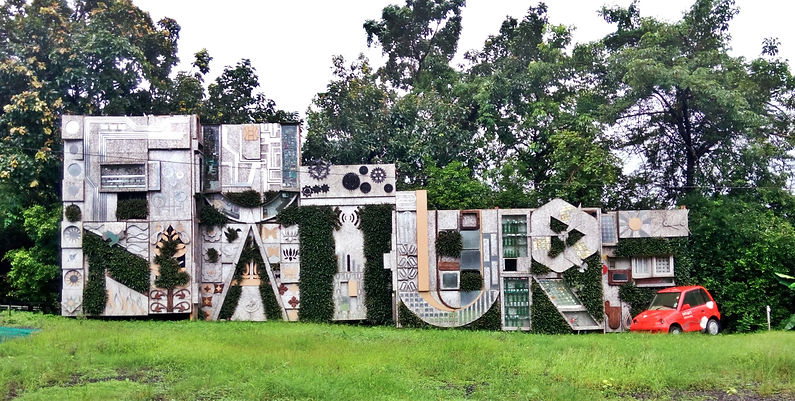
THE STORY OF SMART
SMART EcoPark is India’s first nonprofit ecological park. It spans twenty-acres of tropical forests, clear lakes, and organic gardens. The park is home to countless plants and wildlife, making it one of the most biodiverse areas around Mumbai! Yet only ten years ago the EcoPark was nothing more than a small parcel of barren wasteland. In order to become an ecological paradise, it took over a decade of hard work and dedication-all of which culminated into the nature oasis that SMART is today.
SMART began in 2003 as the idea of a project that would prepare children with skills they will need for the 21st century. This aspiration eventually blossomed into a plan for an ecology park, one which would expose children to the wealth of knowledge that nature has to offer and equip them with tools to become more capable global citizens.
In 2006, the park was founded in Panvel. Only about an hour away from Mumbai, the location was close enough to the city for schools to bring their students on day visits. That original site was a mere three acres of sparsely-foiled dirt, interspersed with withered mango trees and limp sprouts of weeds-not exactly the haven of life one would expect of the land chosen to house an eco-park. But the strong vision of SMART made it possible to see past the dust and know that a greater purpose awaited the land. Thus began an intensive process of transformation. Over the next several years, that pocket of land grew and was slowly transformed into a tropical environment teeming with biodiversity.
With the park’s natural setting taken care of, it was time to tackle the educational side of the project. This meant coming up with an answer to SMART’s defining question: how does one teach kids about the world in a way that makes a deep and long-lasting impact? After much collaboration with educational leaders from around the world, a unique learning module-DIGS-was born. DIGS adopts a holistic approach to teaching and is designed to reach children with all different learning preferences. It is founded upon four core pillars: Dreamcatching, Inner Values, Global Citizenship and Sustainability. They are all woven together throughout the park in a diverse array of activities, games, and lessons aimed to inspire personal and professional growth.
Today SMART EcoPark stands as an award-winning learning studio nestled in a nature sanctuary. A microcosm of creation, SMART has become an oasis for biodiversity. Just by stepping ten feet in past the park’s entrance, visitors pass over 150 different types of shrubs. Its land harbors fauna like butterflies and purebred Gir cows, while over 200,000 florae are rooted within its borders. Trails weave through six distinct forests-their themes chocolate, taste, color, smell, ficus and medicinal. While this burgeoning ecosystem settles into itself, wildlife of India have already begun to adopt the new grounds as a home. For example, although SMART is home to its own flocks of birds, it has recently experienced an unexpected influx of new birds migrating over from a nearby bird sanctuary. SMART is now described as “a twenty-acre experiment in succession.”
Cradled within this lush natural setting are the park’s buildings and facilities, all meticulously designed to promote specific facets of the DIGS learning module. Local artisans, architects, and horticulturists utilized recycled and sustainably-sourced materials to create beautiful spaces that offer the latest advancements in technology and sustainable architecture. The interactive experiences these facilities offer are integrated throughout the park, ranging from an Education Centre where students can experience the world’s first 4-D Global Warming Simulator, to the Lotus Amphitheater where plays are performed to spread awareness of ecological and cultural issues.
Since the day it first began welcoming visitors several years ago, the park has attracted students and teachers not just from across India, but from around the world. SMART makes a point to reach out to schools of all different backgrounds, and often sponsors visits for those without the funds to do so. Over 1000 students from kindergarten to college have now experienced the wonders of the EcoPark, along with dozens of local and international teachers and volunteers. SMART is now in the process of unveiling itself to the world and expanding its reach to students from across the globe. In doing so, SMART aims to continue giving children the knowledge and confidence to create a better future for the world.



